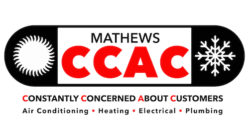Saving energy is always a big concern. Even if you buy energy-efficient appliances and make a practice of conserving power, your house may still be wasting energy in ways you don’t even realize. If you want to find out how to save energy in your home, you should consider a professional energy audit. This can tell you just where and how your house is wasting energy, and what you can do about it.
The first thing your professional energy audit technician likely will do is perform a blower door test. A special high-power fan is placed in your main doorway, and when it’s turned on, blowing air out of your house, it creates a low-pressure vacuum inside. The technician then uses a smoke pencil or thermographic camera to identify where air rushes back in through holes and openings in your home’s outer envelope. The technician should take a calibrated test, rather than an uncalibrated one, in order to determine not only where specific leaks are, but how airtight your home is overall.
The technician may also perform a thermal scan with a special infrared camera that shows where there’s less or more heat, revealing where your home is lacking insulation and exposing additional air leaks. Thermal scans work best when there’s at least a 20-degree difference between indoors and outdoors, so schedule your professional energy audit for a warm day, and turn the air conditioning on. Before a thermal scan, move any furniture away from the walls, and remove all drapes from the windows.
Once your professional energy audit is complete, the technician can show you where your air leaks are and how airtight your home is in general, as well as advising you on what steps you can take to make your home more energy efficient. Just a little bit of time and effort can save you significantly in energy costs.
For more energy-saving tips, as well as general home comfort advice, please contact us at CCAC, Inc. We’ve provided the Coastal Bend with quality HVAC solutions since 1979.
Our goal is to help educate our customers in Corpus Christi, Texas about energy and home comfort issues (specific to HVAC systems). For more information about professional energy audits and other HVAC topics, download our free Home Comfort Resource guide.
Image courtesy of Shutterstock












